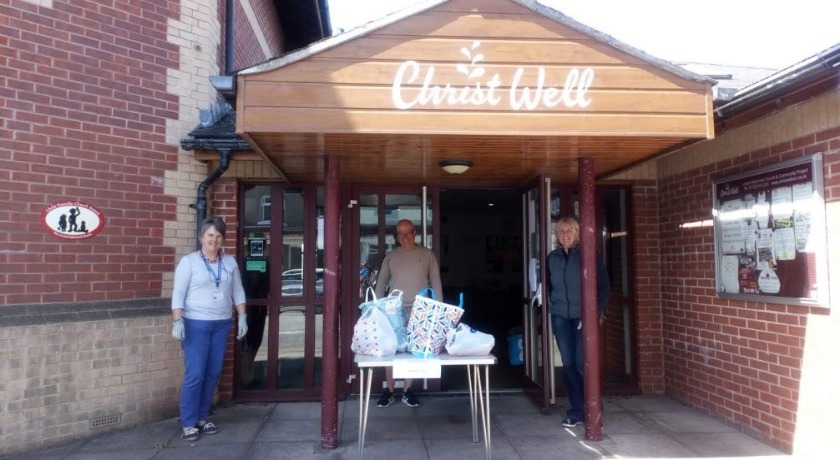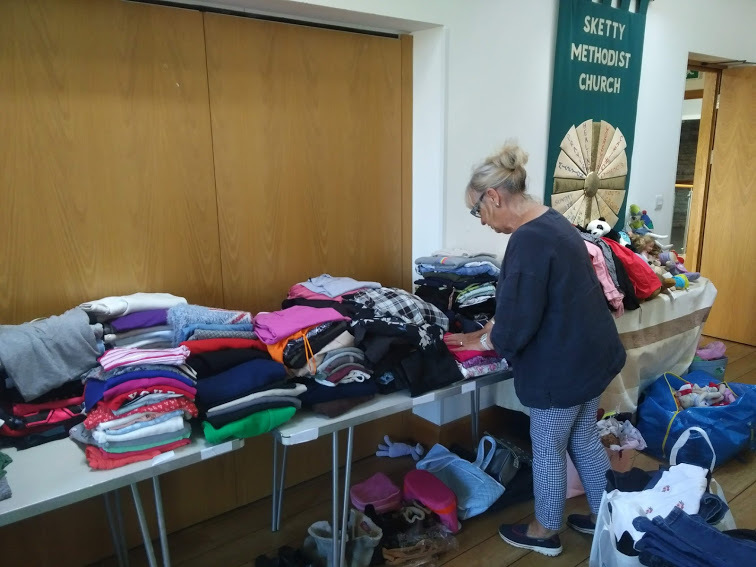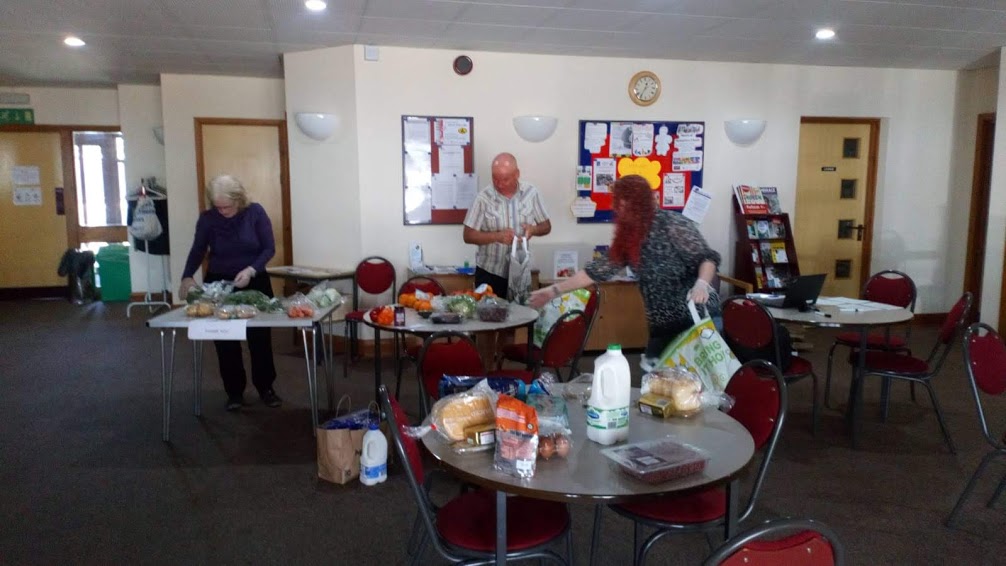 The Covid-19 pandemic has impacted churches and church groups in a variety of ways. But what has remained steadfast is the desperate need of the vulnerable.
The Covid-19 pandemic has impacted churches and church groups in a variety of ways. But what has remained steadfast is the desperate need of the vulnerable.
Adella Pritchard, a United Reformed Church (URC) Related Community Worker (CRCW) in Swansea, speaks to Roo Stewart, URC Programme Support Officer (Church and Society), about how the churches she supports have responded to the needs of their communities since lockdown.
The Revd Neil Riches, Minister of Christ Well URC in Manselton, was due to retire at Easter but he delayed this. Why was that?
Yes, he delayed his retirement until the end of August to help set up an emergency food resource at the church. The Revd Riches and the congregation were able to offer a space to people known through Unity in Diversity (UiD), an asylum seeker and refugee group.
 I’m a trustee of UiD. During lockdown providing activities such as the drop-in, English speakers of other languages (Esol) class, and clothing bank had become tricky but people still needed clothes. So, I approached the Uniting Church in Sketty, about using a large room in the church to lay out all the clothing – at least while the building was out of action for worship services.
I’m a trustee of UiD. During lockdown providing activities such as the drop-in, English speakers of other languages (Esol) class, and clothing bank had become tricky but people still needed clothes. So, I approached the Uniting Church in Sketty, about using a large room in the church to lay out all the clothing – at least while the building was out of action for worship services.
The ‘clearing out’ craze that overtook some households at the start of lockdown resulted in an overflowing clothing bank: so much so that the team needed to be selective about which donations to accept and which to turn away as there was just no more room!
With many regular volunteers shielding, the hunt was on for additional volunteers. Younger people came forward to help, and it was a huge blessing when a car owner offered to become a delivery driver for the team, all co-ordinated by WhatsApp and text messages. Asylum seekers themselves were also involved in the distribution programme as UiD encourages asylum seekers to be involved at all levels, and there are now three asylum seekers on the board of trustees.
It sounds like a you and the churches you support have had an extremely busy and pressurised time adapting and trying to meet the needs of the communities you serve. As restrictions ease around the country, can it be confusing keeping up with government recommendations and advice?
It has been, but we’ve managed.
Many risk assessments are being filled in, and the voluntary sector has changed beyond belief. Many of the tried-and-tested processes for community work also have been reimagined.
The reality is that the Church simply cannot just pick up where it left off, but there is a great opportunity to do things better. The pastoral cycle, used by many workers within the URC and beyond reminds us to reflect and respond accordingly, acknowledging a constant process of change and improvement.
During the long days of lockdown, I drew strength and inspiration from the Iona and Corrymeela communities who produced daily prayers. One reflection in particular,, from the Revd Kathy Galloway, talked about flying kites:
“Now is the time to fly kites, to play with ‘safe to fail’ ideas, from which emergent practice will flourish. Why? To celebrate the kingdom of God closer than breathing, to usher in justice, peace, reconciliation. Always keeping our eyes open to that glimpse of the kingfisher, that brush with the kingdom of God out of the corner of our eye.”
How can we find what ministry looks like in these days?
Try to re-identify what local people want to do by talking to your community groups. You can find a safe way to ‘knock on doors’ by looking at what’s going on in community Facebook or WhatsApp groups, or by working ecumenically.
 The avenues that were once open to community workers, such as schools, day centres and clinic visits, are necessarily limited at the moment, but we could make sure to have something visible outside our buildings and posted on local social media groups, so everyone knows the Church is thinking about them and praying for them. Contexts will vary, but Church members will likely know someone in their neighbourhood who needs help. Is there a collective ‘kite’ your church has? Pray about it!
The avenues that were once open to community workers, such as schools, day centres and clinic visits, are necessarily limited at the moment, but we could make sure to have something visible outside our buildings and posted on local social media groups, so everyone knows the Church is thinking about them and praying for them. Contexts will vary, but Church members will likely know someone in their neighbourhood who needs help. Is there a collective ‘kite’ your church has? Pray about it!
The inspiring work of the congregations in Swansea is representative of that being done by many churches across the country, who continue to do their utmost to lessen the devastating impacts of Covid-19 for everyone.
Adella would be the first to point out that she is only one of a host of CRCWs in Britain who work so hard with their communities along with congregations who give generously of their time, finances and enthusiasm.
I believe it’s entirely appropriate to acknowledge the tremendous impact that CRCWs have on local communities, the gifts and experience they offer and the beautiful way they continue to enable our congregations to be justice-bringers in the margins of society.
He has told you, O mortal, what is good;
and what does the Lord require of you
but to do justice, and to love kindness,
and to walk humbly with your God?
Micah 6:8
To learn more about the CRCW ministry or find information about becoming one, see here.
Published: 19 October 2020




